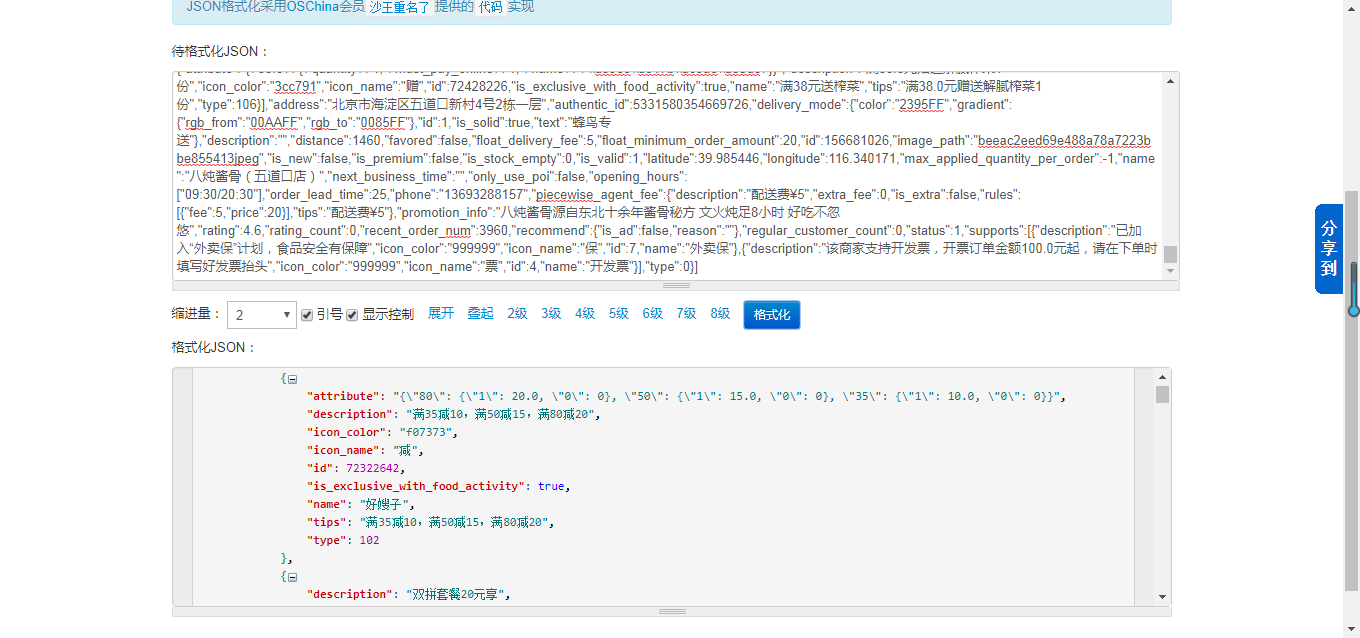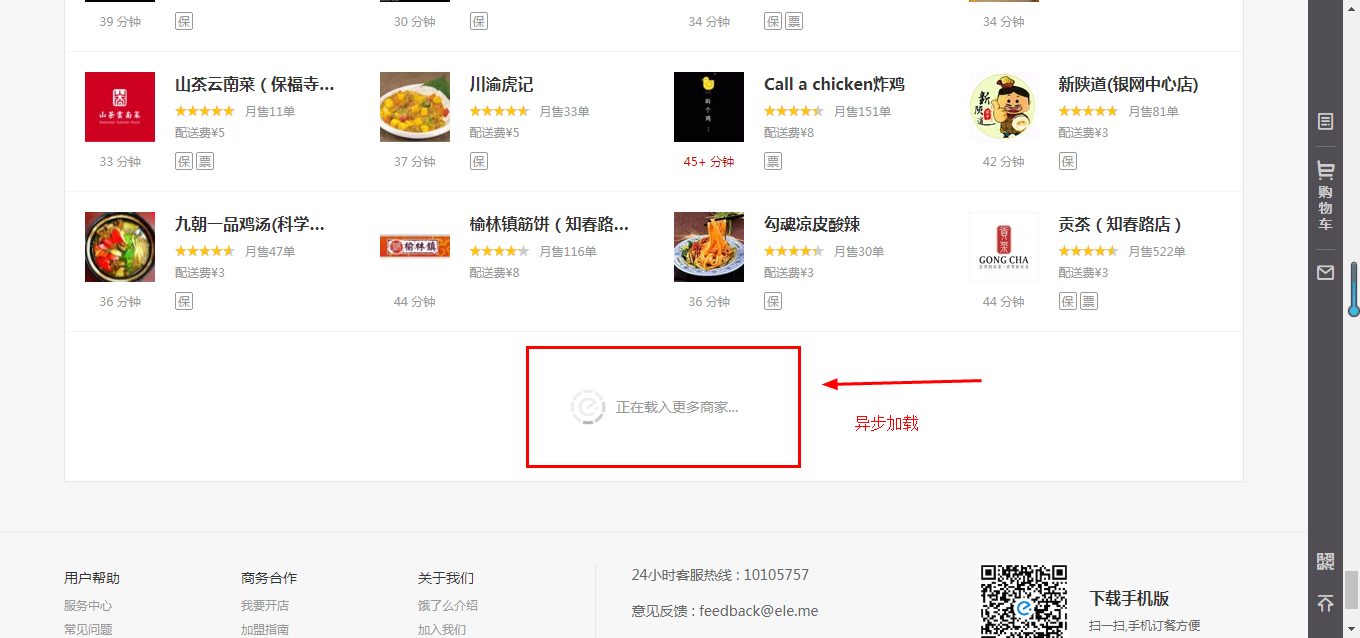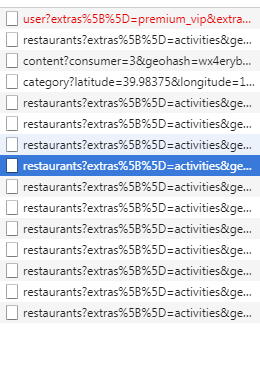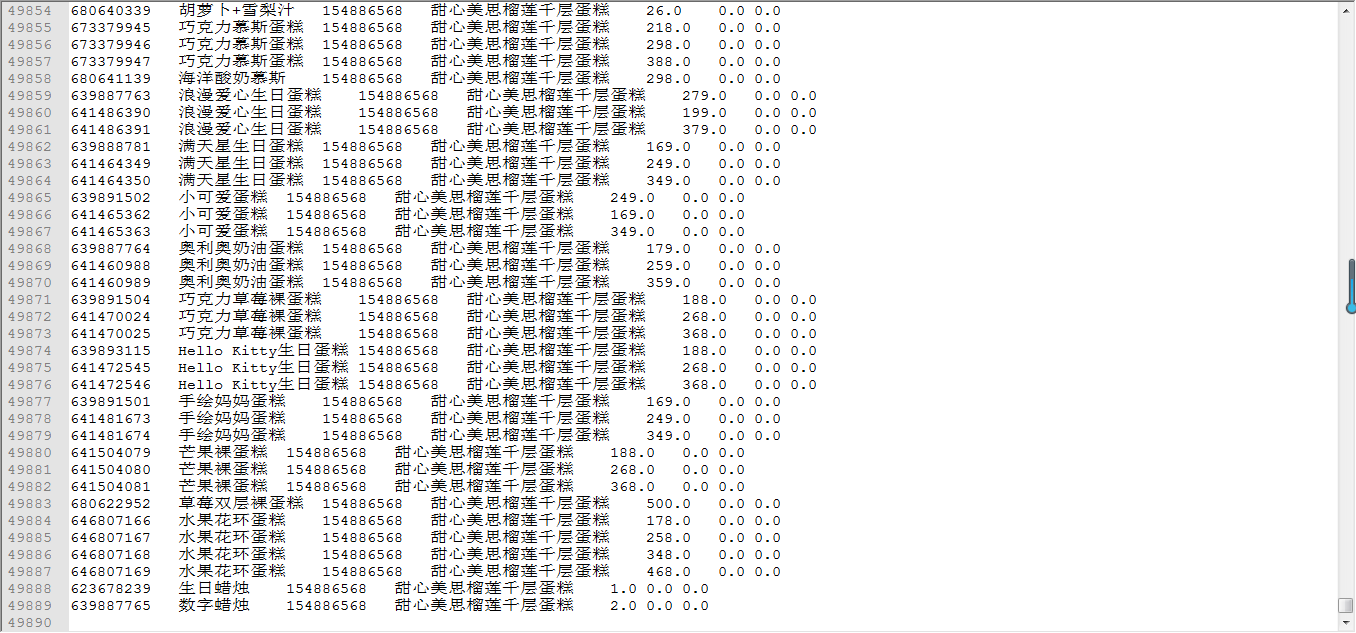推荐使用在线格式化工具:http://tool.oschina.net/codeformat/json
将获取的json数据格式化
找出我们需要的字段信息,在java中写出实体类,注意属性的类型。
写出实体类
商家类:
public class Shop {
private Integer id; //店铺ID
private String name; //店铺名称
private Float rating; //店铺评分
private Integer recent_order_num; //店铺总售量
private Integer order_lead_time; //最迟送到时间
}信息类:
public class Info {
private String name; //分类名称
private Food[] foods; //菜品
private long id; //分类ID
}菜品类:
public class Food {
private Float rating; //菜品等级
private long restaurant_id; //所属餐厅ID
private String description; //描述
private Integer month_sales; //月售量
private Integer rating_count;
private String image_path; //图片路径
private String name; //菜品名称
private Integer satisfy_count; //满意的顾客数
private Integer satisfy_rate; //满意度
private Specfood[] specfoods; //菜品详情
}菜品详情类:(这个是我要的数据类)
public class Specfood {
private String name; //菜品名
private Integer restaurant_id; //所属餐厅ID
private Integer food_id; //菜品ID
private Float recent_rating; //最近评价
private Float price; //价格
private Float recent_popularity; //最近销售量
}上面的类省去了set get 方法、构造方法以及toString( )。
利用gson进行解析
gson的maven坐标<dependency>
<groupId>com.google.code.gson</groupId>
<artifactId>gson</artifactId>
<version>2.8.1</version>
</dependency>下面以爬取北京市海淀区北京大学医学部附近的商铺为例:
因为商铺很多,饿了么是通过滚动条滚到底部,加载一次数据的方式加载店铺
Chrome 监控数据
每次请求只有offset变化,并且是从0~624,每次以24的偏移量递增
package com.yc.elm.utils;
import java.io.BufferedWriter;
import java.io.FileWriter;
import java.util.List;
import org.jsoup.Connection;
import org.jsoup.Connection.Response;
import org.jsoup.Jsoup;
import com.google.gson.Gson;
import com.google.gson.GsonBuilder;
import com.google.gson.reflect.TypeToken;
import com.yc.elm.entity.Food;
import com.yc.elm.entity.Info;
import com.yc.elm.entity.Shop;
import com.yc.elm.entity.Specfood;
public class DataUtil {
public static void main(String[] args) throws Exception {
for (int i = 0; i < 27; i++) {
String url = "https://www.ele.me/restapi/shopping/restaurants?extras%5B%5D=activities&geohash=wx4erybdnx4&latitude=39.98375&limit=24&longitude=116.35717"
+ "&offset=" + i * 24 + "&terminal=web";
Connection con = Jsoup.connect(url).ignoreContentType(true);
Response response = con.execute();
String str = response.body();
System.out.println(i);
Gson gson = new Gson();
List<Shop> shops = gson.fromJson(str, new TypeToken<List<Shop>>() {
}.getType());
parseFoods(shops);
}
}
public static void parseFoods(List<Shop> shops) throws Exception {
FileWriter fw = new FileWriter("data.txt", true);
BufferedWriter bw = new BufferedWriter(fw);
for (Shop shop : shops) {
String url = "https://www.ele.me/restapi/shopping/v2/menu?restaurant_id=" + shop.getId();
Connection con = Jsoup.connect(url).ignoreContentType(true);
Response response = con.execute();
String str = response.body();
Gson gson = new GsonBuilder().create();
if (shop.getId() == 271908 || shop.getId() == 156329101 || shop.getId() == 156277299
|| shop.getId() == 682323 || shop.getId() == 157034079 || shop.getId() == 154898695
|| shop.getId() == 1001894 || shop.getId() == 2142009 || shop.getId() == 476592
|| shop.getId() == 305155 || shop.getId() == 156447071) {
break;
}
List<Info> infos = null;
try {
infos = gson.fromJson(str, new TypeToken<List<Info>>() {
}.getType());
} catch (Exception e) {
throw new RuntimeException(shop.getId() + "网页有问题!!!", e);
}
for (Info info : infos) {
Food[] foods = info.getFoods();
for (Food food : foods) {
Specfood[] specfoods = food.getSpecfoods();
for (Specfood specfood : specfoods) {
Integer food_id = specfood.getFood_id();
String name = specfood.getName();
Integer restaurant_id = specfood.getRestaurant_id();
Float price = specfood.getPrice();
Float recent_rating = specfood.getRecent_rating();
Float recent_popularity = specfood.getRecent_popularity();
if (food_id > 0 && name != null && restaurant_id != 0 && price != 0.0) {
String data = food_id + "\t" + name + "\t" + restaurant_id + "\t" + shop.getName() + "\t"
+ price + "\t" + recent_rating + "\t" + recent_popularity + "\r\n";
bw.append(data);
bw.flush();
}
}
}
}
}
bw.close();
}
}
其中有一些店铺的数据结构比较特殊,遇到他们我们都会 break 掉。
还有一个问题就是,当你多次请求该页面,该页面会把你当成网络攻击器,拒绝你访问。并报出429 430错误。
Exception in thread "main" org.jsoup.HttpStatusException: HTTP error fetching URL. Status=429, URL=https://www.ele.me/restapi/shopping/v2/menu?restaurant_id=157108780
at org.jsoup.helper.HttpConnection$Response.execute(HttpConnection.java:679)
at org.jsoup.helper.HttpConnection$Response.execute(HttpConnection.java:628)
at org.jsoup.helper.HttpConnection.execute(HttpConnection.java:260)
at com.yc.elm.utils.DataUtil.parseFoods(DataUtil.java:51)
at com.yc.elm.utils.DataUtil.main(DataUtil.java:33)
Exception in thread "main" org.jsoup.HttpStatusException: HTTP error fetching URL. Status=430, URL=https://www.ele.me/restapi/shopping/restaurants?extras%255B%255D=activities&geohash=wx4erybdnx4&latitude=39.98375&limit=24&longitude=116.35717&offset=0&terminal=web
at org.jsoup.helper.HttpConnection$Response.execute(HttpConnection.java:679)
at org.jsoup.helper.HttpConnection$Response.execute(HttpConnection.java:628)
at org.jsoup.helper.HttpConnection.execute(HttpConnection.java:260)
at com.yc.elm.utils.DataUtil.main(DataUtil.java:27)429 Too Many Requests (太多请求)
当你需要限制客户端请求某个服务数量时,该状态码就很有用,也就是请求速度限制。
在此之前,有一些类似的状态码,例如 '509 Bandwidth Limit Exceeded'. Twitter 使用 420 (这不是HTTP定义的状态码)
如果你希望限制客户端对服务的请求数,可使用 429 状态码,同时包含一个 Retry-After 响应头用于告诉客户端多长时间后可以再次请求服务。
报429后 隔段时间再次访问还是可以,一旦报430,就必须更换IP地址,这里没有对伪装IP和配置代理进行下一步研究,这个问题暂时没有解决。亲测,这里可以用代码模拟下拉三个页面。
结果:
数据量还是太小,但这是一个好的开始。





























 6244
6244

 被折叠的 条评论
为什么被折叠?
被折叠的 条评论
为什么被折叠?








